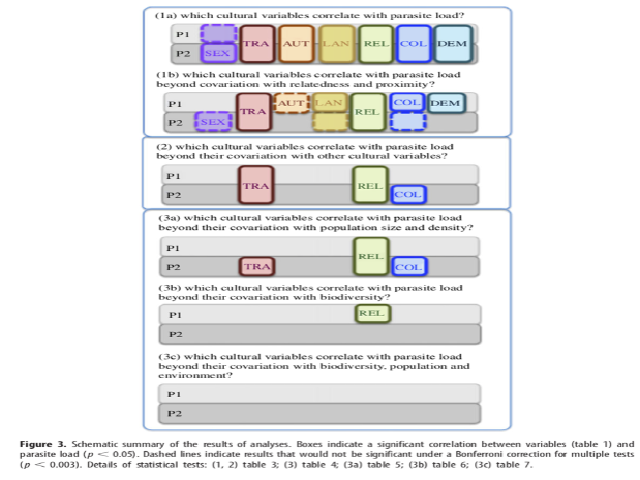Parasites and politics: why cross-cultural studies must control for relatedness, proximity and covariation

Authors:
Citation:
Details:
Published: 9 September, 2018.
Download:
Abstract:
A growing number of studies seek to identify predictors of broad-scale patterns in human cultural diversity, but three sources of non-independence in human cultural variables can bias the results of cross-cultural studies. First, related cultures tend to have many traits in common, regardless of whether those traits are functionally linked. Second, societies in geographical proximity will share many aspects of culture, environment and demography. Third, many cultural traits covary, leading to spurious relationships between traits. Here, we demonstrate tractable methods for dealing with all three sources of bias. We use cross-cultural analyses of proposed associations between human cultural traits and parasite load to illustrate the potential problems of failing to correct for these three forms of statistical non-independence. Associations between parasite stress and sociosexuality, authoritarianism, democracy and language diversity are weak or absent once relatedness and proximity are taken into account, and parasite load has no more power to explain variation in traditionalism, religiosity and collectivism than other measures of biodiversity, climate or population size do. Without correction for statistical non-independence and covariation in cross-cultural analyses, we risk misinterpreting associations between culture and environment.
Related links / Media:
Nothing found.